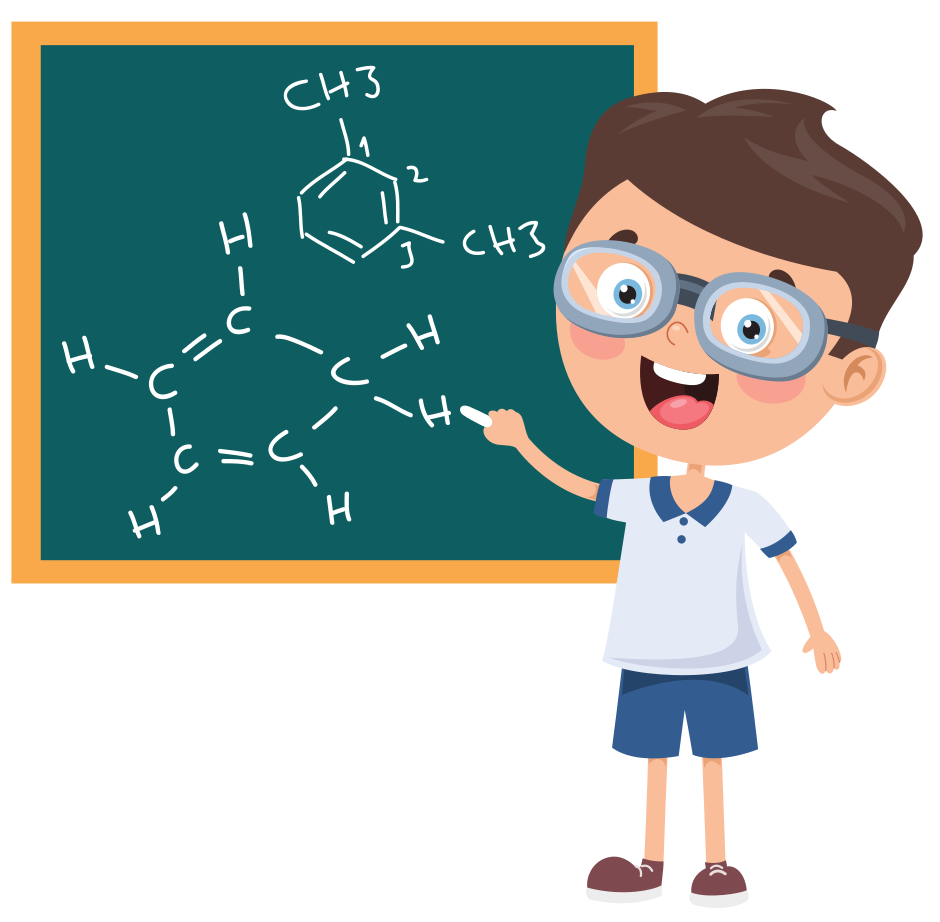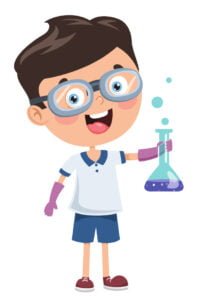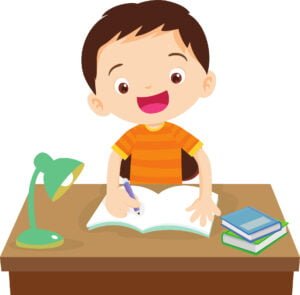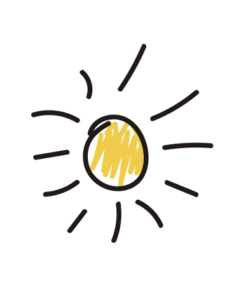Long before Albert Einstein became the world-famous physicist and iconic genius, he was of course, a kid. While his innate talents and personality quirks were no doubt crucial elements in his eventual success, much can be learned from the approach of his parents. In particular, they placed a strong emphasis on his education and on exposing him to mentors.
Born in Ulm, Germany in 1879, the Einstein family moved to Munich a year later. The family eventually moved to northern Italy when Einstein’s father’s engineering business began to falter. Albert attended three schools prior to entering higher education: two in Munich, and one in Aarau, Switzerland (which was his favorite). After his time in Aarau, he finally tested into The Zurich Polytechnic to begin his formal higher education.
Einstein’s personality traits and other factors
It should be said that not everything can be directly traced back to parenting and parenting choices. The development and upbringing of the extremely accomplished, and the development of genius doesn’t necessarily all take place in the home or at school. There are multiple complex factors in the development of all people (not just the gifted) that comprise the rich mosaic and complex, varied experiences that lead to who we become.
Indeed a good amount of genius and extreme accomplishment is likely due to innate talents, quirks, personality traits, and other random factors. For instance, in his book “Einstein: His Life and Universe,” Walter Isaacson points out that Einstein developed more slowly than average as an infant, including delayed speech. Einstein’s parents even consulted a doctor when Albert wasn’t speaking by the age of two. When he finally started speaking, Einstein had an unusual habit of whispering words and phrases to himself, sometimes several times, which concerned his parents and others around him. Some speculate, including Einstein himself, that this slower development caused him to gain an appreciation for things such as space and time that most adults take for granted. This alone may have been a factor in how he perceived the world, and approached problem solving.
Einstein was also comfortable being alone, preferring to play games and solve problems by himself. The games Albert preferred tended to be ones of individual complexity, rather than those involving mingling with other children. His innate disposition to prefer being alone, his curiosity and interest in how the natural world works, his ability to self-teach, and his immense intelligence (which was obvious by the time he was twelve years old) were largely innate and no doubt were big factors in his later scientific success.
Parenting Factors
The impact of parenting and other factors in upbringing shouldn’t be overestimated. However, they also shouldn’t be underestimated. Einstein’s parents, Hermann and Pauline, did several things that helped their son on his way to success. The Einsteins can probably best be described as solidly middle class. Despite the fact that Hermann’s businesses never really succeeded, the family was lucky to have resources from his mother’s side due to the success they had in their own businesses. Hermann and Pauline Einstein managed to provide many opportunities to their precocious and intelligent son. Their actions indicate that they emphasized and prized education and exposure to strong role models.
Albert’s parents eschewed religion, and didn’t attend services or observe traditional Jewish customs. Hermann was a partner with his brother Jakob in an engineering firm. Even when the business later failed, and the economic footing of the family was more precarious, education was always a priority. In addition to formal schooling, there seemed to be special care placed on exposing young Einstein to good schools and mentors.
There are several notable things Einstein’s parents did, as recounted by Albert himself, letters to family and friends, and his biographers:
- Introduction to the natural sciences. One important turning point came to Einstein when he was very young. In “Einstein: His Space and Times,” biographer Steven Gimbel relates how Albert’s father gave him a compass when Albert was sick in bed one day when he was just four or five years old. This gift had an enormous impact on young Einstein. The movement of the compass needle demonstrated to Albert that “something deeply hidden had to be behind things.” The biographer Walter Isaacson relates that this so affected young Albert, that the future physicist later recalled trembling and growing cold at this discovery.
- Introduction to music. Einstein’s mother, Pauline had a great appreciation for music, and was herself a piano player. Music eventually became a lifelong passion for Einstein as well. Gimbel writes that Albert began violin lessons at the age of six. Even though he didn’t at first take to the regimentation and forced practice, he ended up loving music and became a lifelong violin player. Isaacson writes that he even played his violin to help him think when he was stuck on problems. Einstein particularly loved Mozart, whom he thought also understood and appreciated that there’s a beautiful simplicity that connected things in the natural world.
- Emphasis on education. As mentioned above, Albert attended three schools before entering The Zurich Polytechnic. Each was rigorous and would be considered desirable to attend. Albert’s favorite school was the year he spent in a high school in Aarau, Switzerland, which followed the philosophies of Swiss education reformer Johann Heinrich Pestalozzi. Here, Albert finally found a school that welcomed his learning style and individuality, instead of just hammering facts and conformity into the student body.
- Exposure to mentors and thinkers. From early tutors, to weekly dinner guest (and medical student) Max Talmey, to his uncle Jakob Einstein, to boarding with a teacher and his family while attending high school in Switzerland, Einstein had no shortage of exposure to educated minds and mentors.
- Anticipation of needs. Faced with a child with unusually strong math skills and the desire and ability to teach himself complex concepts directly from textbooks, Albert’s parents did what they could to provide their son with books that were well above his grade level. Isaacson relates that Einstein’s sister reported that by age twelve, Albert had, “already had a predilection for solving complicated problems in applied arithmetic.” His parents bought him text books around this time in geometry and algebra, from which Albert taught himself advanced concepts.
- Tolerant of quirks. Einstein was often what could be described as a loner as a child. When he played, he was usually detached from other children, prefering to build by himself or learn independently. This often included working on puzzles, building sets, and even toying with a steam engine given to him by his uncle Jakob. Later on, this included going off by himself and working directly from textbooks to teach himself calculus and physics. Einstein could also be a difficult student, sometimes neglecting subjects that didn’t interest him. While this no doubt displeased his parents, it doesn’t appear to have been a major sticking point of contention while he was growing up. Albert’s parents seemed to have a level of toleration for their son’s quirks, while guiding him the best they could in his education.
Besides his parents, there are two other people who deserve special mention for having an outsized influence on Einstein’s early formation and education:
- Max Talmey. Starting when Albert was ten years old, The Einsteins hosted a medical student for dinner each week named Max Talmey. Isaacson writes that Talmey discussed scientific and mathematics with the intelligent young Albert. Of particular interest to Albert were illustrated science books that Talmey brought over called the “People’s Books on Natural Science.” The books, which include thought experiments, accounts of current scientific experiments, and attempts to tie together different scientific disciplines to help explain the natural world, completely captivated young Albert. Another key contribution that Talmey made to young Einstein’s education and intellectual curiosity was giving him a textbook on Euclidean geometry. An enthralled Albert consumed the text, and it seemed to further light the fire of his growing interest in physics, math, and science. Beyond just the introductions to higher level math and sciences, Talmey appeared to be a role model and an intellectually curious person that Albert could interact with and learn from. At each weekly visit, Albert would show Talmey the problems he was working on and how he solved them. It wasn’t too long, however, before Einstein’s genius asserted itself, and he soon far outpaced Talmey’s ability to keep up.
- Jakob Einstein. Jakob was Albert’s uncle on his father’s side, and partner in his father’s engineering firm. Jakob introduced Albert to algebra, calling it a “merry science.” He filled young Albert with a sense of adventure for the subject, and made it fun by comparing finding the variable “X” to a hunt you just keep working on until you find the solution. Jakob also got Albert a steam engine, which Einstein enjoyed playing with. Later, when Albert’s math skills had advanced, he was invited to work with Jakob and his assistants in solving real-world problems that his engineering firm was working on.
Einstein on Education
As a giant of intellect, it’s interesting to note what Einstein himself said about acquiring knowledge and education. His approach to seeking knowledge and understanding has interested people for decades, and Einstein made many memorable comments on the subject. One revealing quote is that “Wisdom is not a product of schooling, but of the lifelong attempt to acquire it.” Another enduring quote, is that “Imagination is more important than knowledge.”
Einstein also shared some more specific thoughts regarding his perspective on the schooling of young people. Isaacson writes in his biography that when Einstein was asked to give advice on the topic to the New York State Department of Education, he said that the “accumulation of material should not stifle student’s independence.” In other words, rote memorization and cramming information temporarily into one’s head for tests is much less important than truly seeking to understand, to question received wisdom, and to use imagination and creativity to push the boundaries of one’s knowledge.
This is very similar to the approaches of Richard Feynman and Taylor Wilson, written about elsewhere on this website. In a lot of cases these young giants of science, even at very early ages, were fascinated with the natural world and how it works. They emphasized true understanding and following their curiosities over simple rote memorization. While some of this was undoubtedly due to innate characteristics, in all cases, it seems to have been fostered and encouraged in their respective homes by caring and perceptive parents.






